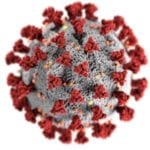ID2020 has weighed in on the subject of immunity certificates in a new white paper published by the Harvard University Edmond J. Safra Center for Ethics. The debate around immunity certificates has intensified in the past few weeks as legislators and public health officials have started to discuss the steps that would need to be taken to safely reopen the economy in the midst of the COVID-19 pandemic.

Immunity certificates could be an incredibly powerful tool in that regard. Someone with an immunity certificate would be able to prove that they are not currently infected with COVID-19. As a result, workplaces, restaurants, and other establishments would be able to screen people as they enter the building to ensure a safe environment.
However, any document with that kind of medical information raises significant privacy concerns. ID2020 insisted that any immunity certificate program would still need to respect people’s basic civil liberties, and be developed in accordance with ethical identity principles.
“We all share an obligation to protect public health, but doing so should not mean giving up our right to privacy,” said ID2020 Executive Director Dakota Gruener. “Proven technologies can be redeployed to protect society from a resurgence of the disease, but this approach must be pursued cautiously, with acknowledgement of the risks and detailed plans to mitigate them.”
To that end, ID2020 argues that immunity certificates would need to be issued by a healthcare organization or a certified testing facility. It also recommends that certificates be stored on the recipient’s mobile phone (instead of a central database) to give individual citizens more control over the credential.
The certificates themselves would be issued to people with COVID-19 antibodies, though ID2020 notes that there is currently not enough testing to implement such a program. Certificates could theoretically be given to people who have recently tested negative for the disease, although there would presumably need to be safeguards put in place to account for the possibility that those people could become infected at a later date.
ID2020 has explored the potential for immunization-based identities in the past, and is currently working with Gavi on an infant immunization project in Bangladesh. Goode Intelligence recently listed ID2020 as one of the world’s most influential digital identity organizations.
–
April 28, 2020 – by Eric Weiss






Follow Us